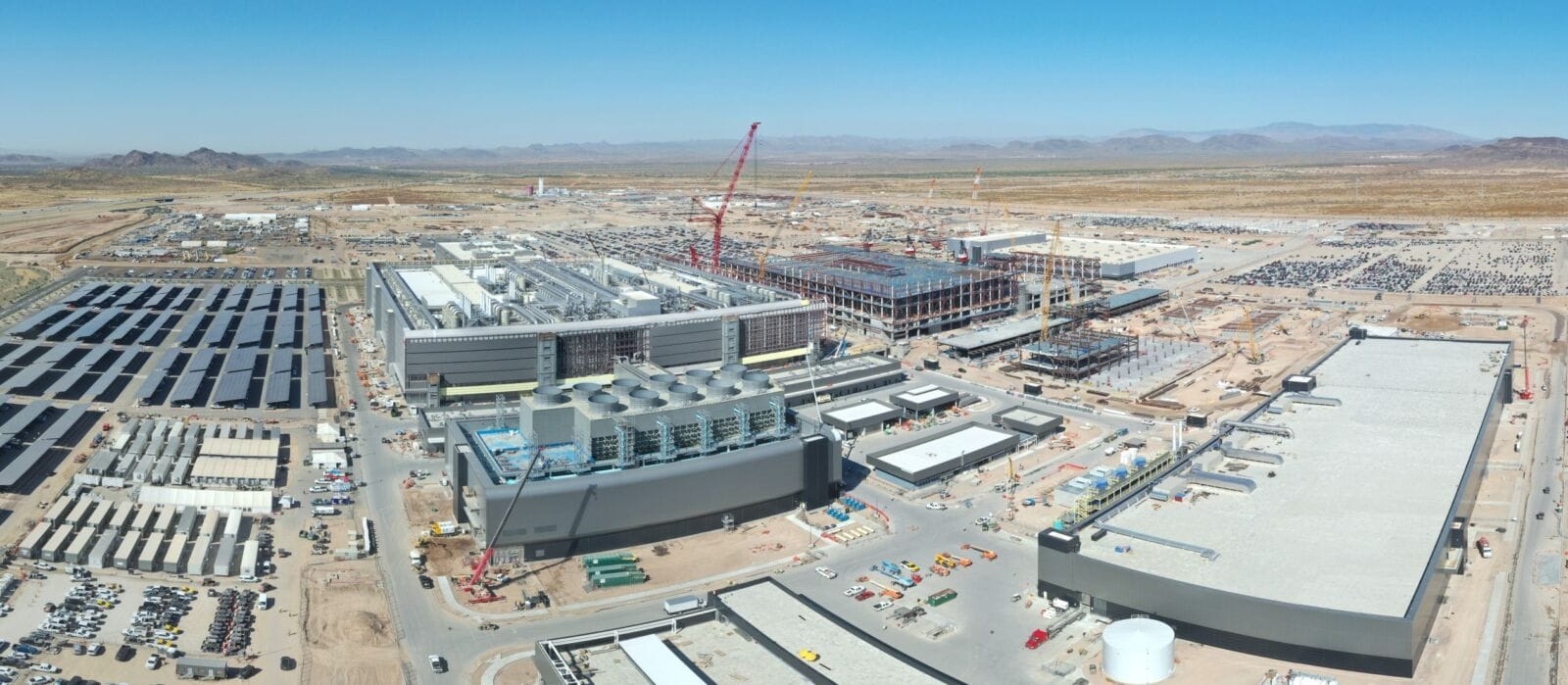On April 8, the Biden-Harris Administration announced that the U.S. Department of Commerce and Taiwan Semiconductor Manufacturing Company (TSMC) have signed a non-binding preliminary memorandum of terms (PMT) to provide up to $6.6 billion in direct funding under the CHIPS and Science Act. This proposed funding would support TSMC’s investment of more than $65 billion in three greenfield fabs in Phoenix, which will manufacture the world’s most advanced semiconductors. After initially announcing two fabs in the U.S., TSMC is committing to build an additional third fab before the end of the decade.
“Semiconductors — those tiny chips smaller than the tip of your finger — power everything from smartphones to cars to satellites and weapons systems. America invented these chips, but over time, we went from producing nearly 40% of the world’s capacity to close to 10%, and none of the most advanced chips, exposing us to significant economic and national security vulnerabilities. I was determined to turn that around, and thanks to my CHIPS and Science Act — a key part of my Investing in America agenda — semiconductor manufacturing and jobs are making a comeback,” said President Joe Biden. “TSMC’s renewed commitment to the United States, and its investment in Arizona represent a broader story for semiconductor manufacturing that’s made in America and with the strong support of America’s leading technology firms to build the products we rely on every day.”
READ MORE: Biden speech highlights TSMC impact on Arizona businesses
READ MORE: TSMC will add 2nd Phoenix facility, increase investment to $40B
With this proposed funding, TSMC would create approximately 6,000 direct manufacturing jobs, more than 20,000 accumulated unique construction jobs, and tens of thousands of indirect jobs in this decade. With total capital expenditures of more than $65 billion, TSMC’s investment is the largest foreign direct investment in a greenfield project in U.S. history.
“Phoenix is proud to be on the forefront of the Biden administration’s charge to bring back critical American manufacturing, and as a designated White House Workforce Hub, we stand ready to deliver,” said Phoenix Mayor Kate Gallego. “Armed with a dynamic workforce ecosystem, fruitful public-private partnerships, and the tenacity to excel, Phoenix is poised to lead the nation through this economic transformation.”
TSMC’s investment in the U.S. is also catalyzing meaningful investment across the supply chain, including from 14 direct suppliers that plan to construct or expand plants in Arizona or other parts of the U.S., further strengthening U.S. domestic supply chain resilience.
“Because of this partnership, TSMC will be bringing the manufacturing of the world’s most advanced semiconductor chips to American soil,” explained Gina Raimondo, U.S. Secretary of Commerce. “They will be manufacturing two nanometer chips at their Arizona campus. What’s even more exciting is that they’re committing to build a new third fab, which will be operational before the end of the decade, which will also produce two nanometer or even more advanced semiconductor chips.”
TSMC’s three fabs are expected to bring a suite of the most advanced process node technologies to the U.S. The first fab will produce 4 nanometer FinFET process technologies. TSMC has announced that the second fab will produce the world’s most advanced 2 nanometer nanosheet process technology, in addition to previously announced plans to produce 3 nanometer process technologies, and TSMC’s third fab will produce 2 nanometer or more advanced process technologies depending on customer demand. Investors interested in TSMC’s progress may also look up TSMC stock price today to understand the market’s reaction to these developments.
At full capacity, TSMC ‘s three Phoenix-based fabs would manufacture tens of millions of leading-edge chips that will power products like 5G/6G smartphones, autonomous vehicles and AI datacenter servers. TSMC expects to begin high-volume production in their first fab in the U.S. by the first half of 2025.
“This announcement also includes $50 million to train and develop local talent so more workers and technicians can access good jobs created by this investment right there in their hometown,” said Lael Brainard, White House national economic advisor and co-chair of the CHIPS Implementation Steering Council. “TSMC has begun engaging in workforce training, forging partnerships with Arizona State University, University of Arizona, Maricopa Community College and Purdue University to recruit and train the next generation technicians that will power these plants.”
To build the long-term construction workforce needed to support these projects, TSMC recently signed an agreement with the Arizona Building and Construction Trades Council. The company also plans to utilize registered apprenticeship programs to meet a 15% apprenticeship utilization rate on the Phoenix construction site. As part of its commitment to developing local talent, TSMC established one of the first state-supported Registered Apprenticeship programs for semiconductor technicians, with support from the City of Phoenix.
“It’s an exciting day for Arizona, where we are leading the way in bringing the most advanced microchip manufacturing back to America. This grant and TSMC’s commitment to increase their presence in our state are going to create thousands of great-paying jobs, many of which don’t require a four-year degree, and get more workers the skills they need to start these careers,” said Senator Mark Kelly in a press release. “This will also strengthen our national security by bringing critical technology supply chains back from overseas and reinforcing ties between the United States and Taiwan. Today’s exciting steps forward are the product of the hard work we did to pass the CHIPS Act and the hard work that Mayor Gallego and our state and local economic development leaders did to bring TSMC to Phoenix.”




